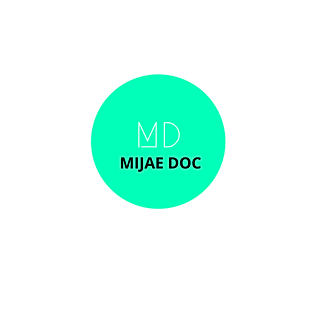The 10 worst ways people might be affected by the new "public charge" Immigration Rule
- mijaedoc
- Oct 13, 2018
- 4 min read
Updated: Jan 18

“It’s been so hard to get an interview date for a US visa and my mother seems frustrated about this,” he said. “Lately, the rate of visa denials, even for those renewing have been increasing at an alarming rate,” chimed his friend...They talked on and on till the conversation thinned out.
I listened in on the conversation as I was in a corner, trying to unplug from my regular day-to-day. I couldn’t help but reflect and be more introspective with the vast changes to US Immigration Laws and how it will affect a lot of people.
And, if you’ve ever wondered why the rejection of visas in most US embassies abroad is on the increase, here’s one of the reasons:
The recently published proposed rule, “Inadmissibility on Public Charge Grounds,” which has made the headlines and is now open for public comment until Dec. 10, 2018, concludes that an immigrant visa or adjustment applicant is inadmissible if he or she “is likely at any time to become a public charge.” According to the rule, an applicant would be considered a public charge if he or she has received one or more of the public benefits listed below.
Cash benefits:
SSI
TANF
State General Assistance
The following non-cash benefit programs will be considered if received by the applicant starting 60 days after the rule is finalized:
Medicaid (except for “emergency Medicaid” and certain disability services related to education)
Medicare Part D Low Income Subsidy
Supplemental Nutrition Assistance Program (SNAP, formerly food stamps)
Benefits provided for institutionalization for long-term care
Section 8 Housing Choice Voucher Program
Section 8 Project-Based Rental Assistance, and Public Housing.
As much as this proposed rule expands on the list of cash benefit programs and several non-cash programs, it will affect applicants of non-immigrant visas (Tourist Visas etc), returning legal permanent residents, applicants for adjustment of status, those present in the United States and want a change / extension of non-immigrant status.
If you are present in the United States and have a need to apply for a change of status or extension of stay, the new public charge standards will be applied to you. As part of the application and adjudication process, such category of applicants will need to prove that they are not receiving nor are likely to receive public benefits.
However, there is a protected class that will not be affected at the time of adjustment of status. These are refugees / Asylees, Amerasians, VAWA, TPS, UVISA, TVISA and other recipients of humanitarian visas. Also, the rule will not be retroactive when it goes into effect. Yes, well-meaning!
Unfortunately, the receipt of benefits by asylees is a one-two punch which will cut short the paroxysm of excitement at the time they are seeking permanent residency (filing I-130) for close family members, etc through the family based process.
"Thank goodness, I'm already naturalized. This proposed rule will have no effect on me," I recall Amanda saying. Or so, she thought! Whoever thought that one's chances of applying for a family member might be scuppered if the naturalized applicant used a fee waiver at the time of naturalization?
In a nutshell, this new rule will mostly affect those:
a. currently receiving benefits
b. who are low income
c. working class who cannot meet the 125% income guideline requirement
d. under 18, young and cannot work
e. who have sketchy employment history
f. who are disabled
g. who are over 62 and cannot be employed
h. who do not have cash assets or investments
i. who are not proficient in English
j. whose sponsor do not meet the 250% income guideline requirement
Sadly, the rule will deter people from coming forward to legalize their stay, because once an application is rejected, the intending immigrant is issued a Notice to Appear before an immigration judge, which is the first step in removal proceedings.
The good news is that, it's still a proposed rule and not currently in effect. Changes can still be made as this rule is currently open for public comments. You can voice your opinions and be heard, maybe. Who knows?
Immigration advocates have been putting the bug in the ears of immigrants and intending immigrants about putting the afore-listed negating factors into consideration when receiving public charges and applying for immigration benefits. Always be a step ahead.
Disclaimer: This post does not constitute legal advice, nor is it a substitute for independent analysis of the law.

ABOUT THE AUTHOR
Enah Jones Vaughn is the founder of Mijae Document Preparation Services and 8 to 8 Notary and More. She is a foreign licensed attorney and accredited to practice US immigration law. Asides working part-time in the areas of immigration and family law, she loves writing to educate the immigrant community on the latest news on US immigration and tips to aid them in gaining legal status. She is an avid lover of Jesus Christ and loves making memories with her toddler son.
Connect with Enah on linkedin.





























Komentáře